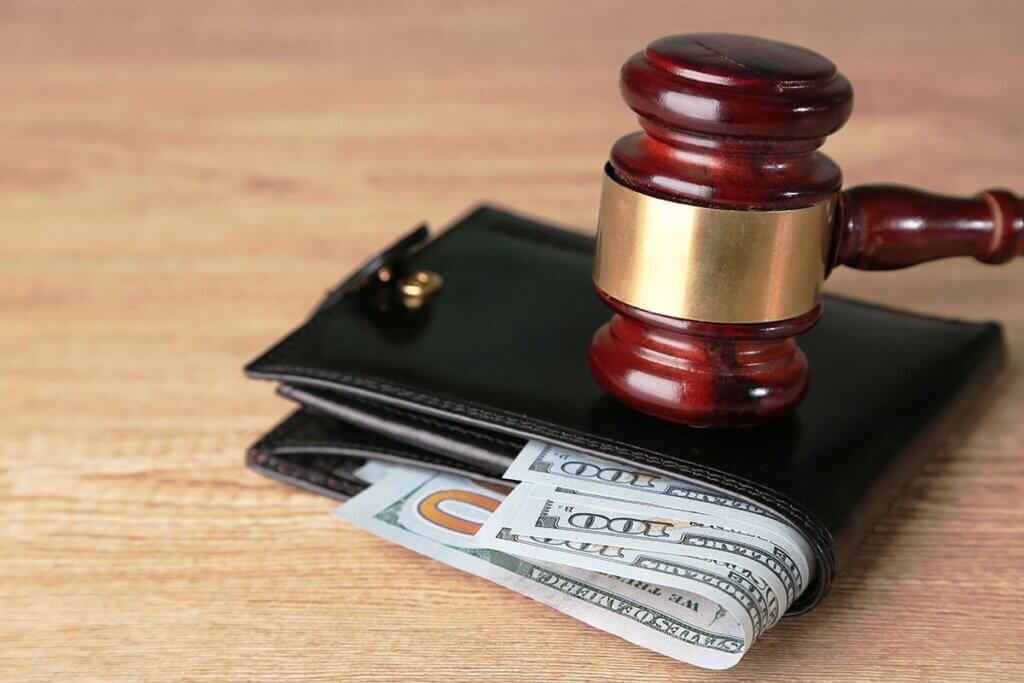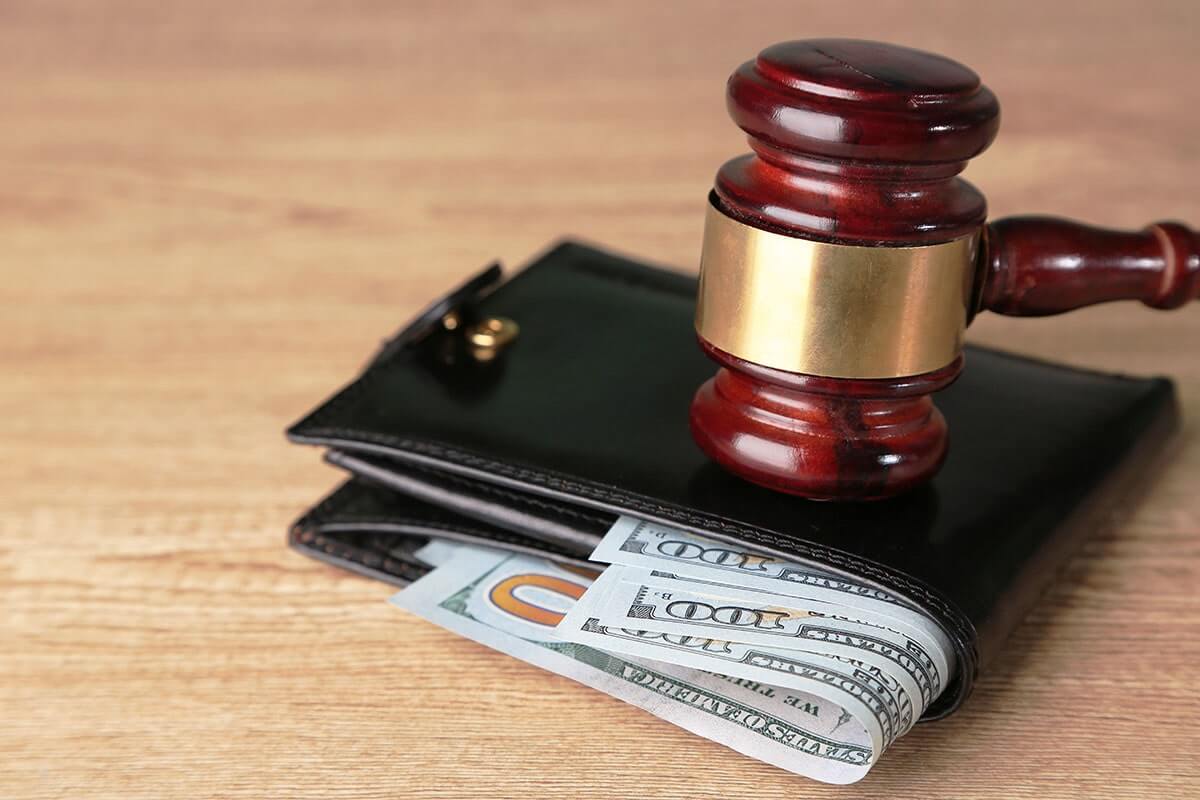
Sometimes people find themselves in overwhelming debt that they can’t pay off. When this happens to a person, their creditors can take the path of garnishing their wages to recover the debt. Garnishment simply means that a court order is given directing that money; usually, a person’s wages are taken to pay back debt. There are many regulations for garnishment for both employers and employees. This article will detail what garnishment is, how it affects a person, and how to get out of it.
What Is Garnishment?
When a person is unable to pay back a debt, their creditors can get court approval to take a specific amount out of their paycheck or bank accounts to pay off their debt. Many times creditors will have to go through the courts to be able to garnish, although there are certain exceptions.
If a person owes child support, alimony, taxes, or federal student loans, creditors don’t have to go through the courts to access their bank or paychecks. In the case of child support, wage garnishment usually happens when a parent requests court-ordered child support to be made from the other parent.
Garnishment can come in two ways, wage garnishment and non-wage garnishment. With wage garnishment, creditors can legally have the person’s employer hand over part of their earnings before anything is distributed to the employee, in order to pay off the debt.
In some cases, a non-wage garnishment will occur. This means that, in addition to going after a person’s wages, they will also pursue a debtor’s bank account by placing a levy on the account. A bank levy is a legal action that gives creditors the authority to take money from a person’s bank account.
Garnishment and Employers
The government understands that employers don’t look favorably on garnishment and, as a result, put in laws to protect people in their employment statutes. When a wage garnishment occurs, employers will have extra administrative tasks to address. If the employers don’t follow through with garnishing the wages as ordered, they could face fines or penalties.
The Consumer Credit Protection Act in Section III forbids a job from termination of employment based on earnings being subjected to garnishment for a person’s debt. There are also limitations on the amount of payments that may be garnished from the person’s earnings. Title III refers to people who get personal earnings: wages, salaries, commissions, bonuses, income from a person’s pensions, and retirement plans.
As noted earlier, there has to be a court order to garnish in some cases. This starts with the creditor filing a Request for Garnishment on Wages, and once it is approved, it becomes a Writ of Garnishment. When this happens, the job is ordered to withhold any employee wages at the time.
Within the next 30 days, the employer must file an answer to the Writ and show that the employee is employed and the salary or hourly rate of pay. They also have to inform them of any other wage garnishment that the employee may have. If for some reason, the employer doesn’t respond to the Writ, they could be held in contempt of court, and the creditors can receive a default judgment against them.
The employer will have to determine the amount of the employee’s wages that must be garnished for each pay period and must hold this amount separately from whatever is distributed to the employee. This will happen until the debt is paid or the court orders the garnishment to stop. Throughout this process, the employee will be informed. The employer must detail the amount taken out for garnishment each pay period and the method used to determine the amount taken out of the person’s paycheck.
When an employee moves on to another job or is fired, the employer must share this information with the court and other parties. When this happens, the garnishment will terminate within 90 days of the person leaving the job. More details on garnishment and employers can be found here.
How Much Can Be Taken Out of a Check?
If someone is in a garnishment situation, the good news is there is a limit to how much creditors can take out of the person’s disposable income. The definition of “disposable income” is the money left over after deductions, which includes taxes and social security.
If debt consists of consumer, credit card, medical bills, or personal loan debts:
- Then 25% of the person’s disposable income can be taken or disposable income less than 30 times the federal minimum wage.
- If a person makes $290 or more weekly in disposable income, then the max of 25% is taken.
- If the income is between $217.51 and $289.99 a week, the amount of $217.51 can be taken.
- The garnishment will not be allowed if the person makes $217.50 or less weekly.
If debt consists of child support and alimony: These debts don’t need a court order to get access to a bank or paycheck.
- If a person is unmarried or doesn’t have other children to care for, then up to 60% can be taken.
- If the person is married or has another child, up to 50% can be taken.
- If the person is 12 weeks late or more in these payments, an additional 5% may be taken.
If debt consists of student loans:
The U.S. Department of Education or another party can collect up to 15%. Another name for this type of garnishment is “administrative garnishment.”
It’s important to remember that creditors don’t have to get a court judgment to garnish child support, alimony, or student debt. A person should also check how their state handles garnishment. For example, while military pay and benefits are exempt from garnishment in New Jersey, a creditor may garnish up to:
- 10% of income if the person makes no more than 250% of the federal poverty level for a household
- 25% for a debt owed to the state if a person earns more than 250% of the poverty level
Ways to Stop Garnishment
Understandably, people are not happy about having their wages garnished and will look for different ways to stop it from happening. There are options available to address it, but the best one will depend on the debtor’s unique situation. For example, one can…
Pay Off Debt
People who are in this situation may not have the means to pay off the debt. However, if the person can, they should. When someone pays off the debt, there will be no need for the garnishment process to continue. If possible, call on friends and family to see if they can help with the total amount, though it is understandable that this may not be an option for some. Still, other options can help stop a garnishment.
Work with the Creditors
Getting calls from debt collectors can be tough to handle and stressful. But working with the creditors can sometimes be the best option. When ready to negotiate, working with an attorney is essential. Using a seasoned negotiator can yield better results. A person in debt may be able to reach a payment plan that works best for their income. When a person and the collection agency develop a payment plan, it can be a good starting point for rebuilding one’s credit.
File an Objection with the Court
An objection is good for a person whose case is valid. A person who has a valid case will not have their money garnished. If proven, any money garnished would have to be returned. There are many reasons that will permit someone to file an objection.
The best reasons to file an objection with the court are:
- The person is under bankruptcy protection
- The person is already paying the maximum amount of garnishment
- The debt has been paid in full
- If the garnishment is invalid, or was it not issued properly
- The person’s funds are exempt from the garnishment process
- The debt itself is invalid or otherwise incorrect
If a person chooses this route, it is important to file the objection promptly. This has to be filed within 14 days after the judgment is delivered. The garnishment will continue if the person does not meet that deadline.
File for Chapter 7 or Chapter 13 Bankruptcy
Bankruptcy is a tool the government created to help to bring relief to people having a hard time paying back debt. While bankruptcy might not be for everyone, there are some people for whom it would provide a great opportunity to relieve themselves of debt that they otherwise have no way to pay. Chapters 7 and 13 are two ways to get rid of debt. When a person files for bankruptcy, an “automatic stay” is applied to their debt. It automatically stops all acts and proceedings against the debtor and their property. This will give the person relief from the creditors while the debt is handled by whatever chapter they have chosen.
Chapter 7 can eliminate debt, and this is created to bring quick resolutions and full debt relief. This plan gives people a fresh start and helps them regain control over their finances. The types of debt covered under chapter 7 include credit cards, medical bills, personal loans, mortgages, and automobile loans. Chapter 7 will not cover student loans, child support, or alimony debt. This process can take a couple of months, but in that time, phone calls from debt collectors and letters will stop. To qualify for chapter 7, a person will have to pass the “means test.” The test is created to determine if the person has disposable income to pay debts. They check to see if a person’s household income is below the state’s median income.
Chapter 13, commonly referred to as the “reorganization plan,” is designed to help the person with reasonable repayment plans and stop creditors’ actions. This plan will create a fair budget based on income and debt obligations. Filing will consolidate debts, help improve the person’s credit, and provide court protection from creditors. To qualify for chapter 13, the person must not exceed the debt limit set for both unsecured and secured debt.
How Can We Help?
On top of being stressed about overwhelming debt, the garnishment process can be challenging to navigate on your own. Understanding your rights and finances is the best way to get through the process. There are many ways to resolve a debt issue, and working with an experienced attorney will give you the best chance at a successful resolution. Lawyers at Rosenblum Law are ready to help you understand your best options through the garnishment process with care and patience. Contact us today for an initial consultation.


